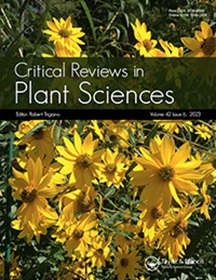系统和自我不相容的分解
IF 6
2区 生物学
Q1 PLANT SCIENCES
引用次数: 6
摘要
自交不亲和(SI)是开花植物通过区分非自花花粉和自花花粉来阻止自花授粉的一种前合子机制。它通过促进异种交配和避免近亲繁殖来控制有性生殖。几千年来,这一特性被育种者和种植者有效地利用,作为操纵驯化作物的工具。然而,在过去的三十年里,才开始努力阐明SI的分子特征。对于需要生产纯合子系的育种者来说,SI是不可取的。此外,在水果作物中,由于SI有利于异交,因此SI阻碍了具有统一性状的真型植株和高质量果实的生产。已经开发了许多技术来分解SI。在这里,我们回顾了目前对不同分子SI系统的理解,并指出了用于分解SI的不同生理和分子技术。我们还讨论了导致从SI到自相容性(SC)转变的进化事件。本文章由计算机程序翻译,如有差异,请以英文原文为准。
Systems and breakdown of self-incompatibility
Abstract Self-incompatibility (SI) is a prezygotic mechanism that prevents self-pollination in flowering plants by distinguishing between nonself- and self-pollen. It controls sexual reproduction by promoting outcrossing and avoiding inbreeding. For thousands of years, this trait has been effectively exploited by breeders and growers as a tool to manipulate domesticated crops. However, efforts to spell out the molecular features of SI have begun only during the past thirty years. For breeders that need to produce homozygous lines, SI is undesirable. Moreover, in fruit crops, SI hinders the production of true to type plants and high-quality fruits with uniform traits because SI favors outcrossing. Numerous techniques have been developed to break down SI. Here, we review the current understanding of different molecular SI systems and pinpoint different physiological and molecular techniques used to break down SI. We also discuss evolutionary events that led to the transition from SI to self-compatibility (SC).
求助全文
通过发布文献求助,成功后即可免费获取论文全文。
去求助
来源期刊
CiteScore
12.90
自引率
1.40%
发文量
15
审稿时长
>12 weeks
期刊介绍:
Critical Reviews in Plant Sciences focuses on presenting in-depth and up-to-date reviews of timely and/or cutting-edge subjects in the broad discipline of plant science, ranging from molecular biology/biochemistry through the areas of cell biology, plant pathology and physiology, genetics, classical botany, and ecology, to practical agricultural applications. Articles in the journal provide an up-to-date literature base for researchers and students, pointing the way towards future research needs. The journal is also a significant source of credible, objective information to aid decision makers at all levels.

 求助内容:
求助内容: 应助结果提醒方式:
应助结果提醒方式:


